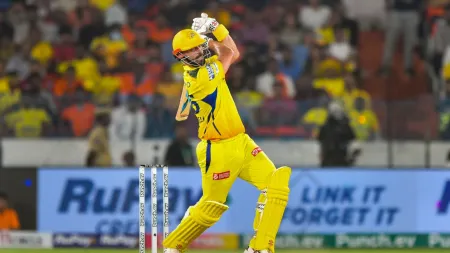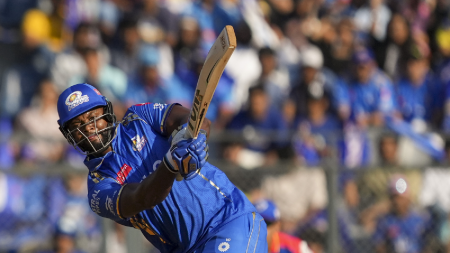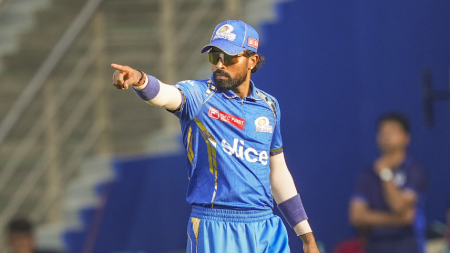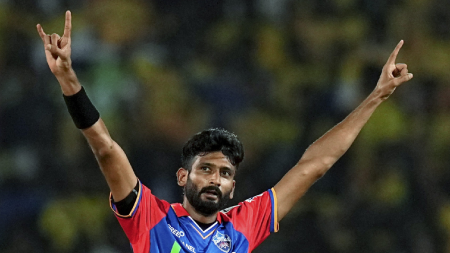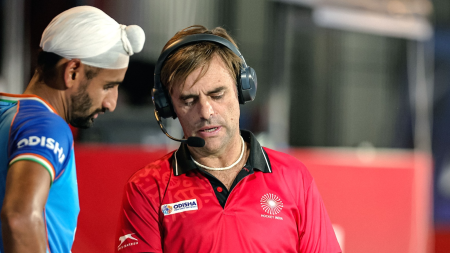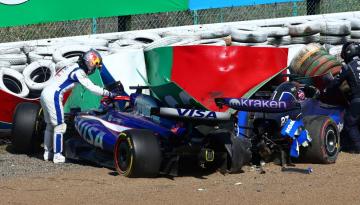Candidates chess: After the battle, a conversational post-mortem between victor and vanquished
Chess Candidates Tournament 2024: For 16 minutes, right after a heartbreaking defeat in the third round of the Candidates chess tournament against compatriot R Praggnanandhaa, Vidit Gujrathi sat in the press room at Toronto’s Great Hall, picking at his scabs with the media in attendance physically and fans watching on YouTube. His teenage opponent was also there, sitting a few feet away, adding his inputs.
Vidit had just played out a 45-move game against Pragg, a loss that will rankle particularly as it came right after he had taken down World No.3 Hikaru Nakamura. Against Pragg, Vidit was constantly in time trouble, with his opponent choking him for oxygen.

Like in every other sport, the chess players are also required to reflect on the game. But unlike any other sport, chess is a rare discipline where both players — the victor and the vanquished, the struggler and the strangler — turn up at the same time for the press conference to answer questions and offer a peek into their thought processes.
Like treasure hunters peering at a map trying to find the right way forward, Vidit and Pragg sat in front of a laptop replaying the Candidates game. Both players retraced their steps through the wild jungle that the chess board had transformed into as soon as Pragg pushed his pawn forward to the f5 square on the fourth move, throwing caution to the winds.
After hard losses, some athletes might want to forget all about it, especially if they have another game inside 24 hours. But Vidit and Pragg sat there gamely, offering insights into what was going through their minds. “Here is where I completely lost the thread of the game,” Vidit said at one point.
R Vaishali and her losing opponent Nurgyul Salimova at the Candidates were also called for a post-match analysis after the third round of games. Vidit had previously done one of these analysis sessions with Gukesh after their opening-round game as had Hikaru Nakamura and Fabiano Caruana after their Round 1 draw.
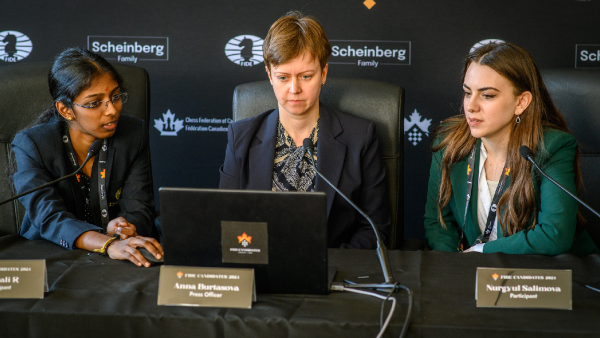 Candidates Chess 2024: R Vaishali and her opponent Nurgyul Salimova dissect their Round 3 game. (PHOTO CREDIT: FIDE/ Michal Walusza)
Candidates Chess 2024: R Vaishali and her opponent Nurgyul Salimova dissect their Round 3 game. (PHOTO CREDIT: FIDE/ Michal Walusza)
While this is not the norm at every chess event, at high-stakes ones like World Championships and Candidates, players are asked to attend the press conference after games to conduct a conversational post-mortem of the game. At some events like the World Championships, not attending press conferences can lead to massive fines: Magnus Carlsen was fined 10 percent of his prize money for storming out of the post-game press conference without answering any questions after a defeat in Game 8 to Sergey Karjakin in the 2016 World Chess Championship.
It’s an odd, yet fascinating, dynamic. Two players who rarely even make eye contact across the board, let alone saying a line to each other while the game is on, sit next to each other prodding and poking at the cadaver of the recently-deceased game.
Competitive community
It’s not just at the press conference. Players are often seen discussing moves and lines after the game. This, in a sport where they operate under a self-imposed omerta for big-events, keeping their cards as close to the chest as possible. Perhaps, it’s natural for chess players to want to speak to someone after classical games, especially when they have spent four or five hours confined inside their own minds with just their inner voice for company.
“It’s very normal to analyse the game (with your opponent) after it’s done. Especially when it was so complicated,” said Vidit at the post-match press conference, with a half-smile appearing across his face.
After his draw in Round 3, World No.3 Hikaru Nakamura lamented the fact that not too many players did YouTube recaps of their games, especially at high-stakes events like the Candidates, where there is plenty of interest.
“It’s very disappointing that Fabiano (Caruana, who hosts a very popular podcast) or maybe some of the Indians aren’t doing recap videos (on YouTube). Would be nice if other players did this because it’s possible to explain what’s going on in the games without giving away preparation,” said Nakamura, who publicly admitted before the Candidates began that his primary job is streaming with chess as his side hustle.
Five-time world champion Viswanathan Anand, while responding to Nakamura’s comments, pointed out that players did regularly make themselves available to analyse games with their opponents after the contest.
At events like the World Championships, these press conferences can lead to some very public moments of soul searching.
“I didn’t think about chess so much at the start of the game. My mind was very strange. Strange things happened. I thought maybe there was something wrong with my mind. I’m a bit depressed,” Ding Liren revealed after Game 1 of the World Chess Championship with his challenger Ian Nepomniachtchi sitting a few feet away.
Over the course of the many press conferences during the World Championship’s 14 games, Liren kept leaking information about his state of mind with Nepo sitting next to him. He said he had changed his hotel a day before the World Championship began. He said his team had considered getting him medical intervention at one point. It was raw vulnerability; like his mind was being X-rayed. And the one man who could exploit all that information was sitting close enough to twist the knife. Or empathetically pat him on the shoulder.
Eventually, even the locked vault of Nepo’s emotions opened up.
“I think I played one of my worst games ever. Every move was bad. My whole game contained inaccuracies. Bad day!” Nepo said while brutally analysing his Game 6 defeat.
Disclaimer: The copyright of this article belongs to the original author. Reposting this article is solely for the purpose of information dissemination and does not constitute any investment advice. If there is any infringement, please contact us immediately. We will make corrections or deletions as necessary. Thank you.
